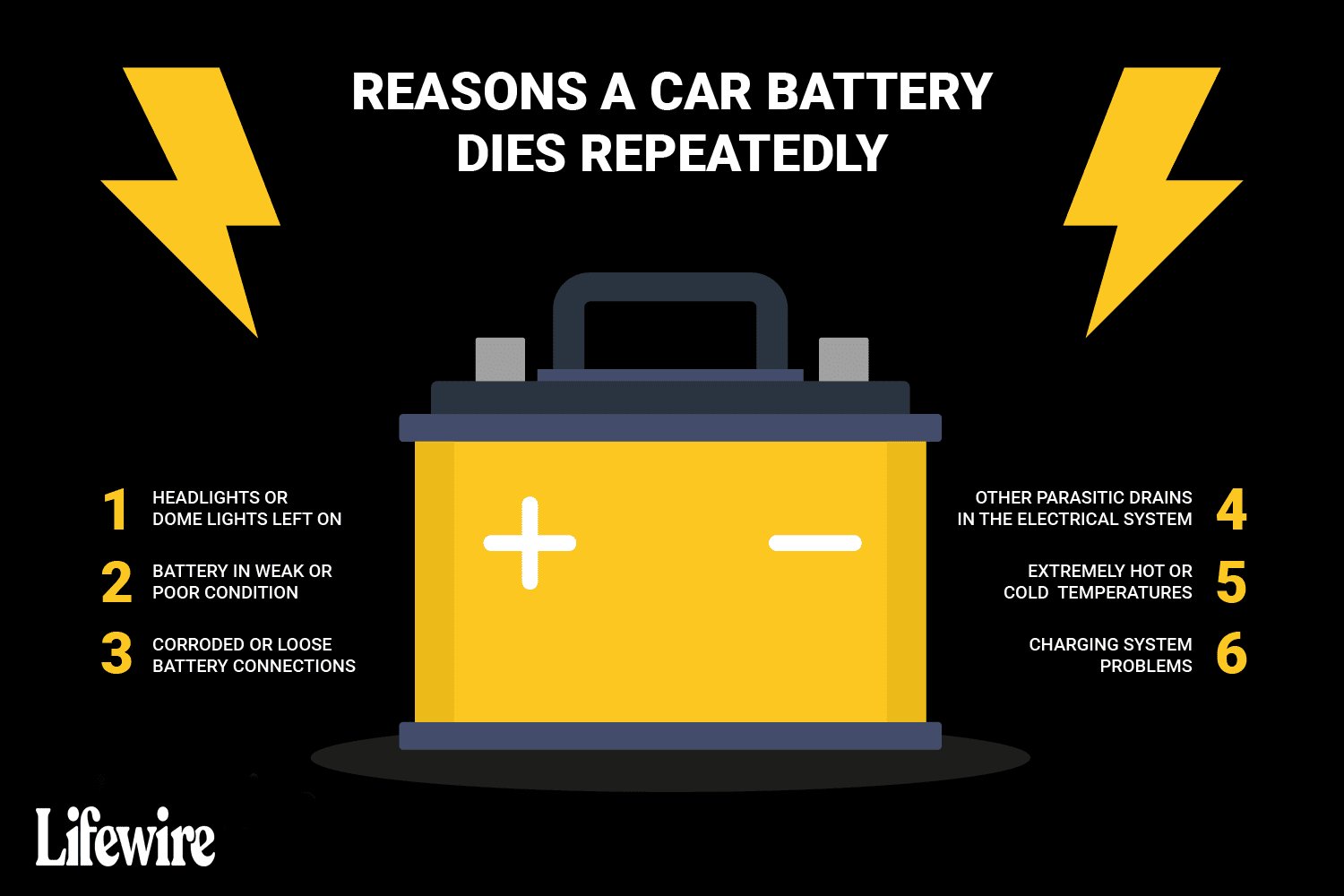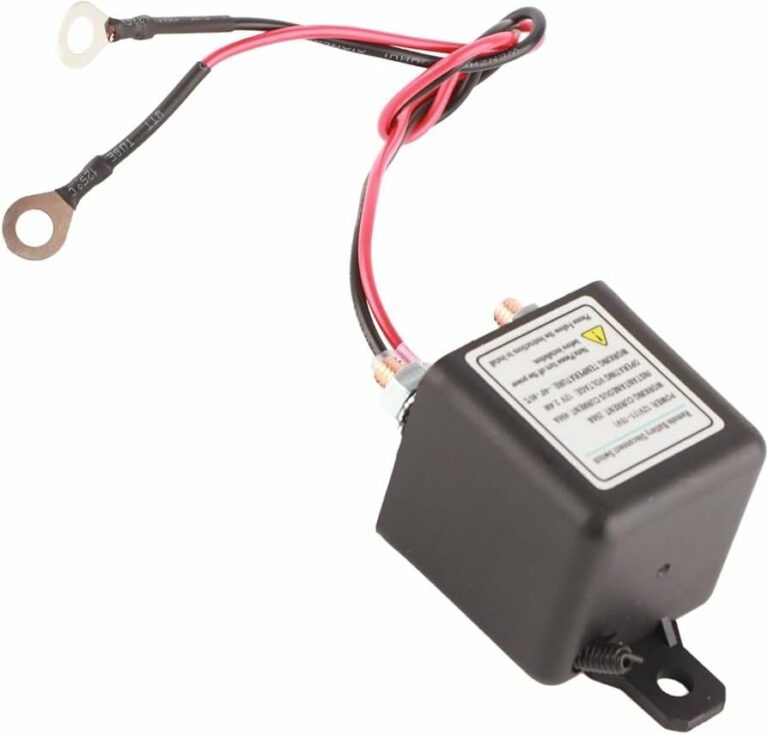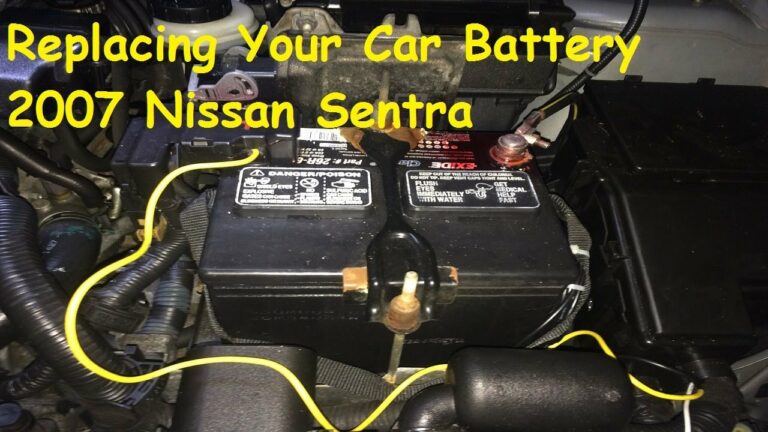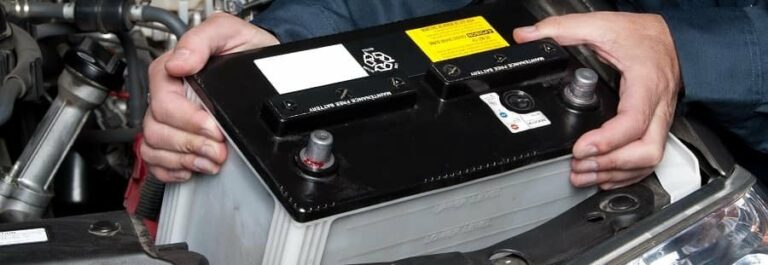Prevent Car Battery Drain When Parked: Tips & Solutions
Are you tired of returning to your parked car only to find a dead battery? It can be frustrating and time-consuming to deal with a drained car battery, especially when you have important places to be. But fear not! In this article, we’ll share practical tips on how to prevent car battery drain when parked. Whether you’re heading out for a long vacation or simply leaving your vehicle unused for a few days, these simple yet effective solutions will ensure your car starts up without any hiccups. So, let’s dive in and explore how to prevent car battery from draining when parked.
How to Prevent Car Battery from Draining When Parked?
Car batteries are essential components of our vehicles, providing the power needed to start the engine and run various electrical systems. However, if your car battery frequently drains when parked, it can be frustrating and inconvenient. Understanding the reasons behind battery drain and implementing preventive measures can help you avoid such situations. In this article, we will explore various tips and techniques to prevent car battery drain when parked.
1. Inspect and Clean Battery Connections
One of the primary causes of battery drain is poor or dirty battery connections. Over time, corrosion can accumulate on the battery terminals, inhibiting the flow of electricity. Therefore, it’s crucial to regularly inspect the battery connections and clean them if necessary. Here’s how you can do it:
– Ensure your vehicle is turned off and the keys are removed.
– Locate the battery under the hood and identify the positive (+) and negative (-) terminals.
– Unfasten the battery cables by loosening the nuts or bolts holding them in place.
– Use a wire brush or battery terminal cleaner to remove any corrosion or buildup on the terminals.
– Clean the cable ends as well.
– Reattach the battery cables securely and tighten the nuts or bolts. Ensure they are snug, but not overly tight.
By maintaining clean and secure connections, you can optimize the flow of electricity and minimize battery drain.
2. Turn Off all Electrical Accessories
When parking your car for an extended period, make it a habit to turn off all electrical accessories. These accessories include headlights, interior lights, radio, air conditioning, and any other electrical components that draw power from the battery. Here are some specific steps to follow:
– Ensure you have turned off the engine.
– Switch off the headlights and interior lights.
– Turn off the radio and any other audio systems.
– Close all doors, including the trunk and hood, to prevent the courtesy lights from draining the battery.
– Check if any other accessories, such as cellphone chargers or GPS devices, are plugged in and unplug them.
Taking these simple steps can help minimize battery drain when your car is parked and not in use.
3. Check for Faulty Electrical Components
Sometimes, a single faulty electrical component can cause the battery to drain quickly. Identifying and addressing these issues is essential for preventing battery drain when parked. Here’s what you can do:
– Perform a visual inspection of your car’s electrical systems.
– Look for any signs of malfunctioning or damaged components, such as flickering lights or unusual sounds.
– Pay attention to the battery drain when specific accessories or systems are in use.
– If you suspect a faulty component, consult a qualified mechanic or take your vehicle to a trusted auto repair shop for further diagnosis and repair.
Fixing or replacing faulty electrical components can significantly reduce battery drain and maintain optimal battery performance.
4. Utilize a Battery Disconnect Switch
A battery disconnect switch is a device that allows you to completely disconnect the battery from the vehicle’s electrical system when it’s not in use. This can be particularly useful if you plan on parking your car for an extended period, such as during a vacation or when storing the vehicle.
– Install a battery disconnect switch in line with the negative (-) battery cable.
– When you park for an extended period, simply turn the switch to the “off” position.
– This will prevent any power drain from the battery and help preserve its charge.
Remember to turn the disconnect switch back to the “on” position before starting the engine. A battery disconnect switch can be an effective tool to prevent battery drain and extend its lifespan.
5. Avoid Extreme Temperature Conditions
Extreme temperatures can have a significant impact on battery performance. Both extreme cold and hot weather can cause the battery to lose charge more quickly. To minimize battery drain due to temperature, consider the following:
– Park your vehicle in a covered or shaded area, especially during hot summer months.
– In colder climates, use a battery heater or insulating blanket to keep the battery warmer and maintain its charge.
– If possible, choose a garage or parking spot with a controlled climate.
By protecting your battery from extreme temperature conditions, you can reduce the risk of unnecessary drain.
6. Ensure Proper Tire Inflation
Maintaining proper tire inflation not only improves fuel efficiency but also reduces unnecessary strain on the battery. Underinflated tires can increase rolling resistance, making the engine work harder and drawing more power from the battery. Check your tire pressure regularly and inflate them to the manufacturer’s recommended levels.
7. Limit Keyless Entry and Alarm System Usage
Keyless entry systems and car alarms are convenient features, but they can also contribute to battery drain if overused. Each time you lock or unlock your car remotely or engage the alarm system, it consumes some battery power. While occasional usage is unlikely to cause significant drain, minimizing unnecessary operations can help maintain battery life.
8. Drive Regularly or Use a Battery Maintainer
Frequent short trips or prolonged periods of inactivity can lead to battery drain. If you don’t use your vehicle regularly, the alternator may not have enough time to fully recharge the battery between trips. In such cases, consider the following:
– Take your car for longer drives occasionally to allow the alternator to replenish the battery charge.
– If you can’t drive regularly, use a battery maintainer or trickle charger. These devices help keep the battery charged while the vehicle is not in use.
9. Opt for a Higher Capacity Battery
If you frequently experience battery drain issues, consider upgrading to a higher capacity battery. Higher capacity batteries generally provide more reserve power and can sustain longer periods of inactivity without draining. Consult with a knowledgeable battery specialist or mechanic to determine the best battery option for your vehicle.
10. Regularly Maintain Your Vehicle’s Electrical System
Regular maintenance of your car’s electrical system is essential for preventing battery drain. Here are some recommended maintenance tasks:
– Have your battery tested periodically to ensure it is functioning optimally.
– Check the alternator’s output voltage to confirm it is charging the battery correctly.
– Inspect the battery cables for any signs of damage or wear.
– Clean the battery terminals and connections regularly.
By staying proactive with maintenance tasks, you can identify and address potential battery drain issues early on.
Conclusion
Preventing car battery drain when parked requires a combination of proactive measures and regular maintenance. By inspecting and cleaning battery connections, turning off all electrical accessories, checking for faulty components, utilizing a battery disconnect switch, avoiding extreme temperature conditions, maintaining proper tire inflation, limiting keyless entry and alarm system usage, driving regularly or using a battery maintainer, considering a higher capacity battery, and regularly maintaining your vehicle’s electrical system, you can minimize battery drain and ensure that your car starts up reliably every time you’re ready to hit the road.
Remember, each vehicle may have unique electrical systems and requirements. If you continue to experience battery drain issues despite implementing these preventive measures, it’s best to consult a professional mechanic or battery specialist who can diagnose and address the underlying problem.
Here’s Why Your Car Battery Keeps Draining
Frequently Asked Questions
How can I prevent my car battery from draining when parked?
1. Can using a battery disconnect switch help prevent battery drain?
Yes, installing a battery disconnect switch can help prevent battery drain when your car is parked for an extended period. By disconnecting the battery, you can cut off the power supply to prevent any unnecessary drain.
2. Is it advisable to remove certain accessories when parking the car?
Yes, removing certain accessories can help prevent battery drain. For instance, removing phone chargers, GPS devices, or dashcams that draw power even when not in use can significantly reduce battery drain.
3. Can extreme temperatures affect battery drain while the car is parked?
Yes, extreme temperatures can affect battery drain. Extreme heat can accelerate battery fluid evaporation, while extreme cold can increase the internal resistance of the battery. Parking in a shaded area or using a battery insulation blanket can help mitigate the impact of temperature on battery drain.
4. How often should I start my car to prevent battery drain?
It is recommended to start your car at least once every few days to prevent battery drain. This helps maintain the charge and keeps the battery active. If you are unable to start your car regularly, using a battery maintainer or trickle charger can be useful.
5. Can parasitic electrical drains be the cause of battery drain?
Yes, parasitic electrical drains can cause battery drain. Malfunctioning components, such as a faulty radio, interior lights, or alarm system, can draw power even when the car is parked. Checking for any such issues and getting them fixed can prevent unnecessary battery drain.
6. Is it advisable to disconnect the negative terminal of the battery when parking the car?
While it is an option to disconnect the negative terminal of the battery, it is not a recommended practice for regular use. Disconnecting the negative terminal may reset certain settings in the car and can be inconvenient. It is better to use a battery disconnect switch instead.
Final Thoughts
To prevent car battery drainage when parked, there are several effective strategies to consider. First, ensure all lights, including headlights, interior lights, and trunk lights, are turned off before leaving the vehicle. Additionally, disconnecting any unnecessary electronics, such as phone chargers or GPS devices, can help reduce battery drain. Regularly checking and maintaining the battery’s health, including cleaning the terminals and ensuring a secure connection, is crucial. Finally, using a trickle charger or investing in a battery maintainer can help keep the battery properly charged during extended periods of parking. By implementing these practices, car owners can prevent unnecessary battery drain and prolong the battery’s lifespan.



